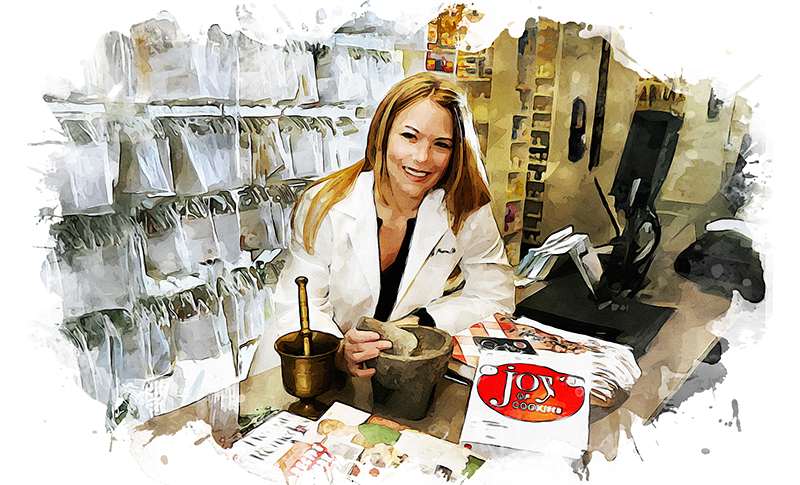Almost everyone is troubled by digestive issues from time to time, and while those rumblings and grumblings down below are much more likely to be something other than colorectal cancer, it is nonetheless important to get any unusual symptoms checked out.
The fact is, colorectal cancer is the third most common type of cancer diagnosis among both men and women in the United States, and the second leading cause of cancer deaths, according to the Centers for Disease Control and Prevention.
View: Colorectal Cancer Awareness MonthThe colon and rectum are 2 of the organs responsible for processing and eliminating the body’s waste, and changes or irregularities in bowel movements are good reasons to make sure that everything is in good working order. It’s important not to ignore signs or simply assume that they will go away on their own.
Since many of the symptoms of colorectal cancer are also quite common, it is easy to overlook them, or pass them off as signs of less serious problems. A combination of these signs, or any that persist for more than 2 weeks, should be addressed by a healthcare provider. Ignoring persistent signs can spell trouble. But how to know what to look for?
Can I Get a BVowel?
We’ve put together this A-E-I-O-U-and-Y list to help you identify and remember the signs that it’s time to schedule a colorectal cancer screening.
A—Any Bloodfrom the Bowel. One of the main signs of colorectal abnormality is the presence of blood on or in the stool. Blood can appear bright red or pink, or if mixed with the stool, the feces appear very dark or black in color (indicating dried blood). Keep in mind, however, that bleeding in the digestive tract is a symptom not limited to colon cancer and may also be a sign of inflammatory bowel diseases, including ulcerative colitis or Crohn’s, hemorrhoids, or other conditions. In addition, some supplements, such as iron, can cause darkening of the stool. In any case, bleeding is usually a sign that something is amiss and should be investigated further.
E―Excess Gas and Bloating in the abdomen, possibly accompanied by severe stomach cramps, could also be triggered by colon cancer. If this occurs frequently or persists, see a doctor.
I—Irregular Bowel Movements. Changes in bowel movements, such as constipation or diarrhea, happen to everyone on occasion, but they are also possible indications of serious illness such as cancer. Although these symptoms are common among those suffering from digestive issues, if the problem persists for more than 4 weeks, a call to the doctor is in order. In addition, changes in shape and firmness of the stools, specifically the appearance of pencil- or ribbon-like stool, is considered an irregularity as well.
Symptoms that occur O―Outside the digestive tract can come in different forms, including the onset of fatigue. This can be alarming if the feeling of extreme tiredness is persistent despite getting adequate sleep, and if paired with one or more other signs. Anemia, or the shortage of red blood cells, can also lead to fatigue. This is usually caused by iron deficiency, and unexplained anemia is a good reason to get checked.
U—Unintentional, unexpected, or sudden weight loss of ≥10 pounds is also a cause for concern, especially if it’s within a span of 6 months and happens without trying to lose weight.
And finally, Y―Your health history.
Know what you put into your body, and make healthy choices about things such as smoking, alcohol consumption, exercise, and diet. Having a family history of colorectal cancer or a hereditary DNA mutation such as Lynch syndrome, or hereditary non-polyposis colorectal cancer, increases the chances. But remember, 4 of 5 colon cancer patients have no prior family history.
Nevertheless, it is possible not to experience any alarming physical signs at all, follow all the advice, and still develop colon or rectal cancer.
Screening Can Save Your Life
That’s why screening is so important. Getting screened for cancer increases your chances of catching symptoms ahead of time, and stopping cancer from developing at all. It’s estimated that 60% of deaths from colorectal cancer can be prevented through screening.
Today, there are many ways to get screened for colon cancer, including virtual CT scans, fecal immunochemical tests, colonoscopy, and even home fecal collection kits. Your healthcare provider can advise you on the best test for you.
The Centers for Disease Control and Prevention recommends that all adults over age 50 get screened whether or not they have symptoms. If caught early, colon cancer is 90% curable.
Don’t Play Games with Your Health! Get Screened!














